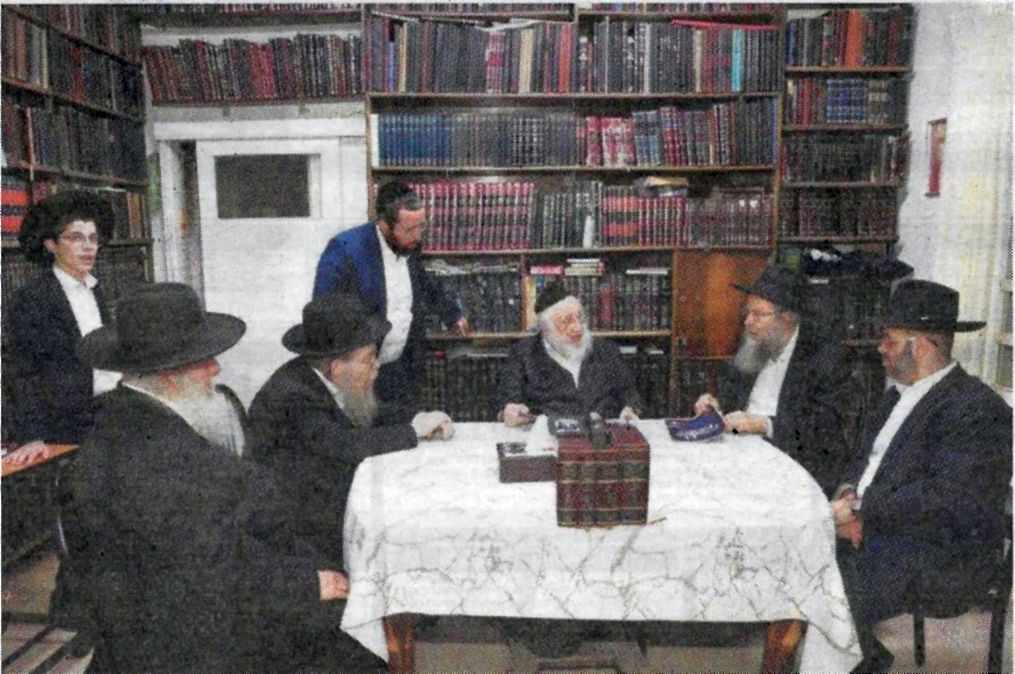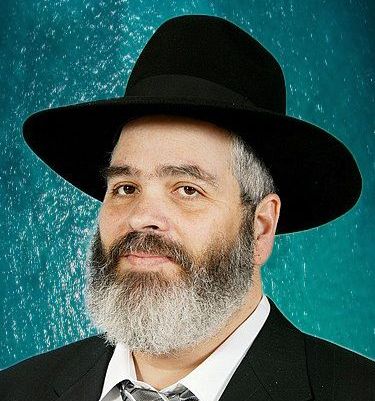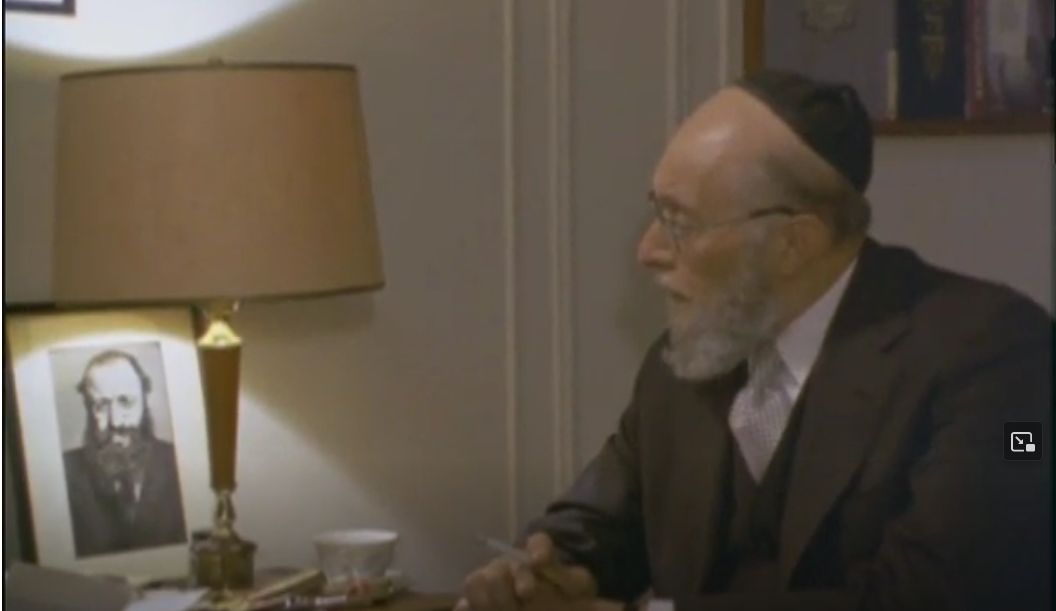  |
|
| |||||
This Google Custom Search looks only in this website. Mishmeres Hashabbos Discusses Inverter Air Conditioners
A special gathering was held in the home of HaRav Berel Povarsky of the Mishmeres Shabbos with the CEO of the company Chashmal Hakeren Dovid Segal. The main topic of discussion was the issues with using inverter air conditioners on Shabbos.
The conference was attended by revered rabbonim: HaRav Shevach Tzvi Rosenblatt, rabbi of Bnei Brak; HaRav Binyomin Garbus, dayan in the Bnei Brak Beis Din and Moreh Tzedek by HaRav Moshe Shaul Klein, and HaRav Eliyahu Beifus, Rav and Chairman of the Mishmeres HaShabbos organization.
The inverter is able to adjust the flow of electric current on a continuous basis, based on the feedback it receives on the conditions in the space. It is very sensitive even to small changes.
In general, the power of the current determines the power of the cooling. The rating of the unit is the amount of cooling it can deliver. In a conventional unit, the compressor is either on or off, meaning that it will either deliver its maximal cooling power or nothing.
The inverter can adjust the power it delivers according to the needs of the environment.
The obsessive persecution of the Leftist camp and its supporters against the public loyal to the word of Hashem stems from one and only one cause: fear. Demographic statistics indicate that in a few years the secular majority of the present population is about to disappear from the world. In truth they only managed to achieve this majority through great efforts made by the founders of the State through the camps of shmad which were established to eradicate religion at the very beginning. The blessed increase of the religious and chareidi camps versus the decline of the other camp, is already evident today through the impressive growth of the mitzvah-observant sector which will continue to grow with the passing of time.
Already today, the Israeli public in the main seeks religion. The efforts of the State since the establishment of the State to uproot every yearning for true Judaism from the younger generation was met with dismal failure. The Central Bureau of Statistics publicized, among other facts, the profile of the religious orientation of Jews in Israel according to their personal definition: 45% defined themselves as secular; 25% as traditional, 16% were religious or "very" religious, and 14% professed to be chareidi.
This is how a country looks when it is crumbling. The weak stitching which united its parts is coming apart and Israeli society is on the verge of total collapse.
Some are surprised at the situation which has evolved while others ask why it didn't happen earlier. How was a society torn apart and divided, able to preserve some sort of accord for so many years?
Three days a year were supposed to have been above all controversy: the Holocaust Memorial Day, the Memorial Day for Fallen Soldiers and Victims of Terror, and, of course, the Israeli Day of Independence. During these three days, consensus was expected to reign in the country and should have been beyond all dissension. To be sure, we are not relating to the chareidi position for reasons understood, but the general Israeli public regarded these days as the unifying element between all of the various sectors of the population: between Coalition and Opposition, Right and Left, the more or the lesser traditional-religious elements of the people and those distant from Judaism.
<Part 2
This long series of articles was originally published in print in 1994, exactly 29 years ago. It describes the approach and feeling of certain representatives of the Zionist movement during the Holocaust. Sammy Kaufman argues that their behavior was influenced by their political desires to achieve a Jewish state, and their assessment that Jewish sacrifices in the war will make achievement of that goal more likely.
The first part of this series discussed the situation that prevailed in Slovakia at the beginning of the war, as the Germans began to ship Jews off to the death camps. Jews from all groups and backgrounds united against the common danger, forming the Working Group to save Jews. They found that Jewish lives could be bought fairly cheaply and they appealed to Jewish organizations all over for the funds. Some expressed concern about sending money that would aid the enemy. Others had more "ideological" grounds, as we will see in this part.
Writing after the war, Rav Weissmandel recalled the stunning response of Nathan Schwalb, the Zionist representative of the Hechalutz movement, who was sent to Europe to help his fellows. By "fellows" Schwalb only meant Zionists and the Zionist cause, as we will see herein.
* * *
Outstanding Articles From Our Archives
IN-DEPTH FEATURES
By HaRav Refoel Berlson
The Sefas Emes became the Admor of Gur at the age of 23 in 5630 (1870). He led his chassidim for 35 years until he passed away just over a hundred years ago. His heritage is evident in the strong Gur communities that are found in Eretz Yisroel and America.
*
He devoted the focus of his attention on avreichim striving to elevate themselves in Torah and avodoh. "I did not make a commitment to be a go-between among merchants or to solve the problem of the dairyman whose cow refuses to produce enough milk. I only committed to teach chassidim about man's obligation in his world and to advise them on how to be real Jews."
But of course the chassidim continued to consult him on every matter. Once a chossid came to him asking him what to do after hearing his son's kallah had health problems. "If this were true, her father would have mentioned it to me," he said. "Since he has not spoken about the matter with me you can rest assured she is perfectly healthy."
One day the Admor of Slonim, the author of Dvar Shmuel, met with him to discuss matters of the most sublime nature. During the course of their conversation HaRav Shmuel asked why he always spoke so tersely, keeping exchanges to a bare minimum. "I simply cannot afford the time," answered the Sefas Emes. "I have to learn."
The Slonimer Rebbe replied with a vort on the verse, "Imru tzaddik ki tov ki pri ma'aleleihem yocheilu" (Yeshayohu 3:10).
Opinion & Comment
"For a Talmid Chochom is a Living Sefer Torah"
"Shimon, his son (of Rabbon Gamliel), says: All my days, I grew up amongst Torah scholars and I have not found anything better for a body than silence" (Ovos 1:17).
In one of the lessons of HaRav Shraga Feivel Mendelowitz zt'l, founder of Yeshivas Torah Vodaas in New York, he asked: Why does the tana R' Shimon introduce his words with a biographical comment? Why doesn't he simply state: There is nothing better for a person than silence?
R' Shraga Feivel provided his own answer: R' Shimon's opening remarks teach us that in addition to the Torah which is learned from the teachings of Chazal, a person can also acquire regular knowledge, both in halochoh and in derech eretz, by closely probing the daily conduct of talmidei chachomim, for our Torah sages are veritable living Torah scrolls!
At this point of the lesson, one of the students interjected, "Are there any such Torah scholars in this modern age? Are there any to be found in Yeshivas Torah Vodaas?"
|
|||||




.jpg)


